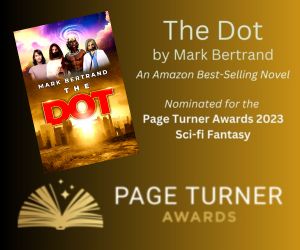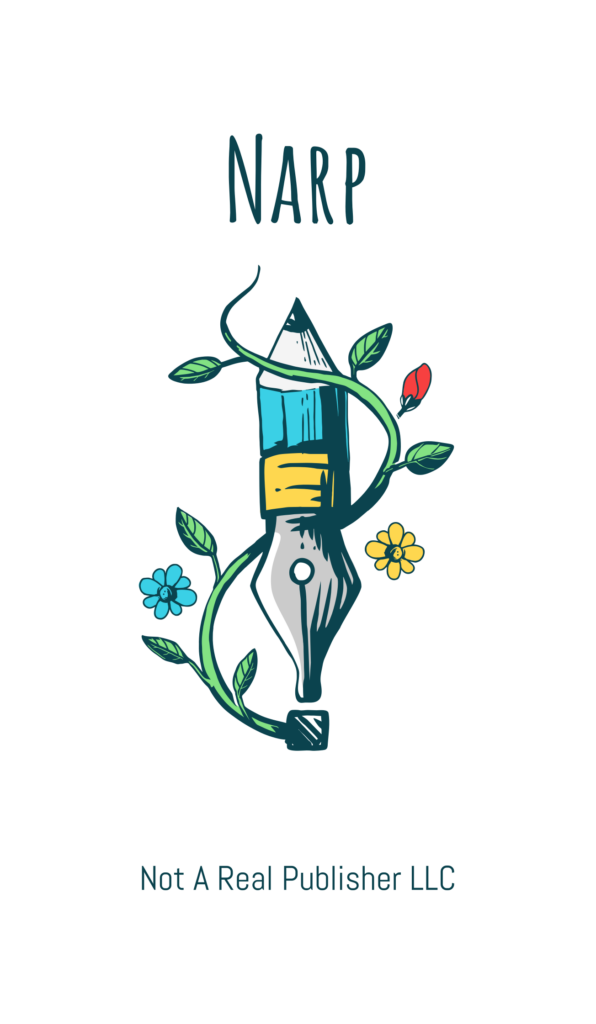Vision for the Future
Imagine a society where people wake up driven not by the grind of survival but by the excitement of creation. Writers, artists, thinkers, and makers thrive because the wealth they generate—whether through a heartfelt post on Instagram, a groundbreaking novel, or a simple smile shared in a live stream—comes back to them.
This isn’t just about removing material inequality; it’s about unleashing the human spirit and celebrating the joy that makes life worth living.
Scene 1: A Ping from the Future
Mateo Rivera yawned and stretched, the aroma of freshly brewed coffee drifting through his small kitchen. The early morning sunlight cut through the blinds, striping the wall with bands of gold and shadow. His phone vibrated on the counter, the screen lighting up with the familiar notification tone of his bank app.
Mateo hesitated. He wasn’t in the mood to start the day with disappointment. Balancing bills against his paycheck had become a ritual of frustration. He grabbed his mug, took a long sip, and finally picked up the phone.
The number on the screen made him blink twice. Then a third time.
“What the fuck?” he muttered.
The account balance was almost double what it had been yesterday. Two deposits stood out, listed as:
- ChatGPT Dividend Program: $245.00
- Meta Value Share: $180.00
He set the mug down, his hand trembling slightly, and tapped on the transaction details.
“$425,” he said aloud, shaking his head. “From where?”
He scrolled further, trying to make sense of it. The breakdown was strange. Payments were linked to things he’d barely thought about since doing them:
- $25 for commenting on a Reddit thread about vacuum-sealing cannabis.
- $100 for a detailed Instagram post on decarboxylation temperatures.
- $120 from engagement metrics on a ChatGPT discussion about cannabis oil’s impact on cognitive repair.
Mateo rubbed his temple and walked back to the small kitchen table where his laptop sat open.
Ten Minutes Later
Mateo scrolled through his Instagram feed, re-reading the post he’d made last week. It was a quick breakdown of a cannabis sous vide technique he’d been experimenting with. He’d posted it on a whim, thinking it might help someone. The comments had blown up, but he hadn’t thought much of it at the time.
His sister, Carmen, walked in, holding a plastic grocery bag. She kicked the door shut behind her, balancing the bag and her phone.
“You’re up early,” she said, setting the bag on the counter. “What’s got you so…” She squinted at him. “You’re pale. Are you okay?”
Mateo didn’t look up. He held out the phone.
“Look at this,” he said.
She took it, glanced at the screen, then raised an eyebrow. “Okay, rich man. Did you win the lottery or something?”
“Does this look like lottery money?” He gestured toward the screen on his laptop, now showing an explanation of the Freedom Forward Republic’s “Joy Dividend” program. “It’s from my Instagram and ChatGPT posts.”
Carmen dropped her phone on the counter and leaned over to read. “Wait, wait, wait. You’re saying your weed nerd shit made you money? Like… real money?”
“That’s exactly what I’m saying.” He gestured at the screen. “Apparently, this is part of California’s whole ‘Freedom Forward’ thing. They’re redistributing money from platforms back to people who create value. Engagement, clicks, shares—it all adds up.”
Carmen grabbed a chair and sat next to him. “Hold up. Run that by me again. They’re… paying people for comments and posts? Like, normal people?”
Mateo nodded, still scrolling. “Yeah. It’s not just about influencers anymore. They’re tracking who actually creates value—like informative posts, discussions, research—and paying them out of the ad revenue these platforms make.”
“So… you’re getting paid for being a cannabis nerd online?”
“Looks like it.”
Carmen laughed, slapping the table. “Finally! All those hours you spent watching sous vide videos and arguing with strangers on Reddit are paying off. Mom’s gonna be proud.”
Later That Morning
Mateo sat at the table, the laptop still open in front of him. The more he read, the less surreal it felt. California’s government had broken ties with the United States and implemented a system where wealth was redistributed to citizens based on their contributions to digital platforms. Engagement metrics weren’t just for advertisers anymore—they were for everyone.
“Okay,” Mateo said to himself, “how much did I actually do to earn this?”
He opened his Instagram analytics. One post, 23,000 views, 400 shares. He opened Reddit next: a thread about cannabis oil where his comments had been upvoted over 2,000 times. Then ChatGPT: a thread on the medical potential of cannabinoid serums where his contributions had sparked dozens of follow-ups.
The phone buzzed again. Carmen, now lounging on the couch, glanced over. “Another deposit?”
“No.” He frowned, opening the notification. “It’s a breakdown of activity. Like… what I contributed and what it earned.”
Carmen sat up. “Lemme see.”
He turned the screen toward her. She squinted at it, then whistled. “Damn, Mateo. You’re like… an actual expert. People are paying attention to you.”
He rubbed the back of his neck. “I mean, I never thought it was worth anything. Just… stuff I’m interested in.”
“Well, apparently California thinks it’s worth $425. What are you gonna do now?”
Mateo leaned back, staring at the screen. “Keep going, I guess. See how far this can take me.”
“You’re not gonna quit your day job, are you?”
He laughed, but it was hollow. “Not yet. But if this keeps up…”
Closing Note
As Mateo watched the numbers tick upward on his bank app, the world outside his window felt quieter, almost distant. California’s seismic shift was still rippling through the country, through his life, and through the strange new economy it had created.
For the first time in years, Mateo felt something unfamiliar: hope.
Scene 2: The Cannabis Experiment
Setting: Mateo’s small, cluttered living room, now a collaborative workspace buzzing with activity. The once-solitary operation has grown into a small team effort. His makeshift lab has expanded slightly, with a corner cleared for a camera setup, microphone boom, and lighting gear. Nearby, another desk holds a laptop surrounded by stacks of notebooks and sticky notes.
Mateo stands at the lab table, focused on his experiment. Behind the camera, Diego, a tall, wiry man with a shaved head, adjusts the focus on a DSLR camera while testing the mic levels. Across the room, Nina, an energetic woman with glasses and a no-nonsense attitude, is hunched over her laptop, scrolling through analytics and jotting down notes in a spiral notebook.
Dialogue and Action
“All right, we’re rolling,” Diego says, giving Mateo a thumbs-up from behind the camera. “Take it from the top. Keep it smooth this time—you rambled last take.”
“I don’t ramble,” Mateo shoots back, then smirks.
Diego raises an eyebrow. “Yeah, and terpenes are overrated.”
Mateo chuckles, takes a breath, and turns to face the camera. “Okay, folks, today we’re diving into decarboxylation using the sous vide method. If you’ve been struggling to preserve terpenes while fully activating your cannabinoids, this is the experiment for you.”
Behind the camera, Diego leans toward the mic. “Levels are good. Keep going.”
Mateo picks up a vacuum-sealed bag of finely ground cannabis and holds it up. “This is about two grams of mid-tier flower. Nothing fancy, but perfect for testing. We’re sealing it up to keep everything airtight before dropping it in the water bath.”
Nina looks up from her laptop. “Mateo, don’t forget to mention the last batch’s results. People love the continuity.”
“Oh, right.” Mateo pauses and glances at the camera. “Quick recap: Our last experiment had a terpene retention rate of around 85%, but the cannabinoid activation wasn’t as high as I’d hoped. That’s why we’re tweaking the temperature this time—185°F for three hours should hit the sweet spot.”
The Workflow Dynamics
As Mateo continues his demonstration, Diego adjusts the camera angle for a close-up shot of the sous vide machine. “Hold that bag up again,” he says. “Tilt it so the logo’s visible. Sponsors love that.”
“Noted,” Mateo replies, doing as instructed.
Meanwhile, Nina interjects from her desk. “Heads up: The Cannabis Science Collective forum just bumped our last post to their featured section. That’s going to bring in a ton of traffic. I’m tagging it across Instagram and Reddit, too.”
“Good call,” Diego says without looking away from the camera. “But make sure the hashtags aren’t overkill. Last week, we got dinged for looking spammy.”
“Relax, I’ve got it covered,” Nina replies, rolling her eyes but smiling. “Also, I found a new research hub that pays better for verified contributions. They’re looking for content on cannabinoid applications in mental health. I’ll add it to the list.”
Mateo looks up, curiosity piqued. “Better than ChatGPT threads?”
Nina nods. “Way better. They pay per citation, and you’re already doing the heavy lifting with all these studies you’re referencing.”
“Sweet. We’ll talk about it after this,” Mateo says, turning back to the camera.
Expanding the Experiment
As Mateo seals the bag and drops it into the water bath, Diego moves in for a tight shot. “Say something about the science,” Diego prompts. “People eat that up.”
Mateo grins. “All right, let’s talk science. Decarboxylation is the process of removing a carboxyl group from cannabinoids like THCA and CBDA. It’s what turns these inactive compounds into THC and CBD, the stuff that actually interacts with your endocannabinoid system.”
Diego nods approvingly. “Nice. Nerdy, but not too nerdy.”
“Thanks for the feedback, Spielberg,” Mateo quips, earning a laugh from both Diego and Nina.
Behind the Scenes
While the sous vide does its work, the team gathers around Nina’s laptop to review analytics.
“Okay, here’s where we stand,” Nina says, pulling up a dashboard on the Freedom Forward app. “YouTube is killing it this week. The last video has 25,000 views, average watch time is still solid at 7.5 minutes, and we’ve pulled in $220 in ad revenue alone. Add engagement bonuses, and that’s another $100.”
Mateo leans over her shoulder, impressed. “What about Instagram?”
“Not as strong,” Nina admits. “But still decent—$75 so far from the last two posts. And Reddit contributions are steady at $50.”
Diego leans back in his chair. “Damn. So, between all this, we’re looking at… what? Five hundred bucks this week?”
Nina shrugs. “Closer to six, if the engagement spikes keep up.”
Mateo grins. “I’m not complaining. Six hundred a week from doing what we love? Feels surreal.”
The Team Dynamic
As the timer beeps, signaling the end of the sous vide process, Diego moves quickly to capture the action. “All right, Mateo, let’s do this. One take.”
“Got it.” Mateo retrieves the bag, holding it up for the camera. “Moment of truth, people. Let’s see if this batch lives up to the hype.”
As Mateo carefully cuts open the bag, Diego gets a close-up of the steam and aroma escaping. Nina, meanwhile, snaps a few photos for Instagram.
“This is the content that pays,” Nina says, half to herself. “Authentic, hands-on, and nerdy as hell.”
“And worth every penny,” Mateo adds, his focus back on the experiment.
The Upload and Aftermath
Hours later, the video is edited, polished, and uploaded to YouTube with the title “Decarboxylation Perfected: Sous Vide vs. Traditional Methods.” Nina schedules posts across all platforms, tailoring captions and hashtags for maximum reach.
As the views and comments start rolling in, the Freedom Forward app sends a notification:
Daily Update: $310 earned from new video and post engagement. Keep up the great work!
Mateo sits back, a satisfied smile on his face. “Teamwork makes the dream work, huh?”
Diego raises a mock toast with his coffee mug. “Here’s to making nerdy science profitable.”
Nina smirks. “And here’s to keeping us in the black. Don’t forget—bills still exist, even in the Freedom Forward Republic.”
They all laugh, but there’s an unspoken truth in the room: for the first time, they feel like they’re part of something bigger—a system that values their passion and hard work.Scene 3: The Joy Dividend Unveiled
Setting: The team’s expanded workspace, a mix of Mateo’s living room and a recently cleared dining area. Desks are now scattered with equipment and papers, while a whiteboard in the corner is covered in brainstorming notes, video ideas, and analytics charts. It’s late evening, and the warm glow of desk lamps gives the room a cozy yet industrious atmosphere. Mateo, Diego, and Nina gather around a table, the remains of takeout containers pushed to one side.
The Scene Opens with Reflection
Mateo leans back in his chair, swirling the last sip of his coffee. “I still can’t believe this,” he says, gesturing toward the Freedom Forward app open on his phone. “Six months ago, I was just posting random experiments for fun. Now, we’re getting paid enough to make this a real thing.”
Diego, hunched over his laptop editing their latest video, smirks. “You mean you were posting random experiments. Don’t forget who turned those potato-quality videos into actual content.”
“Yeah, yeah,” Mateo says, throwing a crumpled napkin at him. “Credit where it’s due. You and Nina turned my chaos into… slightly organized chaos.”
“Organized chaos that pays,” Nina chimes in, scrolling through her laptop. She taps on the screen, catching their attention. “Check this out—another notification from the Joy Dividend app. We just got a bonus for community impact.”
Mateo frowns. “Community impact? What does that even mean?”
“It’s part of how they calculate revenue now,” Nina explains. She reads aloud from the app’s description: “‘Activities that contribute to public knowledge, improve well-being, or enhance collective happiness earn additional bonuses.’ Basically, the more people we help, the more we earn.”
Exploring the Happiness Economy
Diego swivels in his chair, rubbing his chin thoughtfully. “It’s kind of genius, when you think about it. Instead of rewarding corporations for exploiting people’s attention, the system rewards creators for actually… I don’t know, making people’s lives better.”
Nina nods, pulling up an infographic on her laptop. “Exactly. Look at this—engagement metrics like watch time, likes, and shares are only part of the equation. They also track comments about how content impacted someone’s life. Stuff like, ‘This helped me understand decarboxylation’ or ‘I used this serum for my dad’s Alzheimer’s.’ That’s why we got the bonus—our content isn’t just popular; it’s useful.”
Mateo leans forward, intrigued. “So, it’s not just about clicks and views anymore. It’s about… joy. Fulfillment.”
“Bingo,” Nina says, snapping her fingers. “The government’s whole pitch was to shift the economy from productivity to happiness. People are spending less time grinding and more time doing what they love. And when they do, the ripple effects are huge.”
The Joy Economy in Action
The conversation turns to how the Joy Economy has reshaped California—and beyond.
Diego gestures at the whiteboard, where a list of potential sponsors and partnerships is scrawled. “Remember how hard it used to be to monetize anything creative? You’d have to rely on ads or brand deals, and even then, they’d take most of the cut. Now, the platforms are legally required to pay us directly for the value we create. No middlemen, no bullshit.”
“And it’s not just us,” Nina adds. “Look at the numbers. Small businesses are thriving. Artists, musicians, teachers—anyone who’s sharing something meaningful is getting paid. It’s creating this whole cycle of happiness driving revenue, and revenue driving happiness.”
Mateo nods, a slow smile spreading across his face. “It’s wild. I used to feel guilty spending time on this stuff, like it wasn’t ‘real work.’ Now, it feels like the most important thing I’ve ever done.”
The Backstory of Change
As the discussion continues, Mateo turns the conversation toward the bigger picture. “Okay, but how did we get here? I mean, the old system didn’t just collapse overnight. What made California flip the script?”
Nina, ever the researcher, pulls up a series of articles on her laptop. “It started with the Freedom Forward Republic’s constitution. They restructured the economy around three pillars: sustainability, community, and happiness. It wasn’t just about redistributing wealth—it was about redefining value.”
Diego chimes in, setting his laptop aside. “Yeah, but the corporations fought it tooth and nail. Remember when Silicon Valley tried to relocate en masse? They thought they could starve the system out. But instead, it forced California to double down on decentralized networks. Blockchain-based payouts, community-owned platforms… It’s like the state became a massive co-op.”
“And now,” Nina adds, “the corporations are crawling back because they realized they can’t compete with an economy that actually works for people.”
Mateo leans back, rubbing his temples. “So, it’s not just about making videos or earning bonuses. It’s about being part of something bigger.”
A Personal Impact Story
Nina closes her laptop and turns to Mateo, her tone softening. “Speaking of bigger things, I got an email from someone this morning. A guy in Arizona. His mom has early-onset Alzheimer’s, and he said he’s been following your cannabis serum experiments. He’s trying to replicate the process for her.”
Mateo sits up straighter, his eyes widening. “Are you serious?”
Nina nods. “Dead serious. He said your videos gave him hope when nothing else did.”
For a moment, the room is silent. Diego breaks it with a low whistle. “Damn, man. That’s heavy. You’re not just making content—you’re making a difference.”
Mateo swallows hard, the weight of the realization settling over him. “I didn’t think…” He trails off, then shakes his head. “I didn’t think it could be this real.”
Closing the Scene with Momentum
As the night wears on, the team dives back into their work, energized by the conversation. Nina brainstorms ways to expand their reach on new platforms, Diego experiments with video effects to make their content more engaging, and Mateo outlines the next experiment he wants to try.
Before they call it a night, Mateo glances at the whiteboard and adds a new goal:
“Help 1,000 People by the End of the Year.”
Diego raises an eyebrow. “Ambitious much?”
Mateo grins. “If this system’s taught me anything, it’s that joy isn’t just personal—it’s contagious. Let’s see how far we can spread it.”
The team laughs, the kind of easy camaraderie that comes from shared purpose. Outside, the city hums with life, a testament to the quiet revolution transforming California into a beacon of hope for a world desperate for change.
Scene 4: How It All Changed
Setting: A quiet café in downtown Oakland, bathed in late afternoon light. Mateo, Nina, and Diego sit at a corner table, their laptops open but momentarily ignored as they sip coffee and reflect on the seismic shifts they’ve lived through. On the wall, a flat-screen TV plays a muted news broadcast showing a map of California with bold text: “The Freedom Forward Republic: One Year Later.”
Opening Reflection
Mateo leans back in his chair, swirling his iced coffee. “Crazy to think it’s only been a year since the big break. Feels like we’ve lived through a whole lifetime of change.”
Nina looks up from her laptop, adjusting her glasses. “You’re not kidding. Remember the day California declared independence? People thought it was a joke at first. A publicity stunt.”
Diego chuckles, stirring sugar into his espresso. “Yeah, until the state legislature dissolved itself live on TV. That’s when everyone freaked out. Half the country was ready to riot, and the other half wanted to move here.”
Mateo smirks. “And the corporations? They didn’t know whether to sue, leave, or kiss California’s ass.”
Nina shakes her head, a wry smile on her face. “They tried all three. Didn’t work out too well for them, did it?”
Flashback: The Day It Changed
The scene shifts to a memory: Mateo is sitting in his living room, watching the news on an old flat-screen TV. The camera cuts to California’s governor standing on the steps of the Capitol building, flanked by state officials. Her voice is calm but firm as she announces California’s secession.
“Our decision today is not made lightly,” she says. “But the time has come to reclaim our future. The Freedom Forward Republic is founded on three principles: sustainability, community, and happiness. We will no longer allow our resources—human or natural—to be exploited for profit at the expense of our well-being.”
The broadcast cuts to chaotic scenes across the country: protests in front of tech company headquarters, celebratory marches in San Francisco, heated debates in Congress.
Mateo sits frozen, his phone buzzing with notifications. Carmen, his sister, bursts into the room, holding her phone. “Did you see this? Are we… are we seriously a new country now?”
Returning to the Café
Back in the present, Nina snaps Mateo out of his thoughts. “Earth to Mateo. You zoning out on us again?”
He shakes his head, chuckling. “Just remembering how surreal it all felt. Like we’d stepped into a dystopian novel, but somehow it wasn’t as bad as it sounded.”
Diego gestures toward the TV on the wall, where a journalist is summarizing the economic impact of the Joy Dividend system. “It’s still surreal, honestly. An entire economy based on happiness? If you told me that two years ago, I’d have laughed in your face.”
Nina grins. “And now you’re making a living filming nerds cooking weed.”
Diego raises his coffee in a mock toast. “To nerds cooking weed.”
The Resistance and Triumph
As the team continues chatting, the conversation turns to the challenges California faced during its transition.
“They didn’t just let us walk away,” Nina says, her tone more serious. “Remember the lawsuits? The economic sanctions?”
Mateo nods. “Yeah. The feds froze California’s federal funding. Corporations threatened to pull out completely. There was a real moment where it felt like the whole thing could collapse.”
“But it didn’t,” Diego says, leaning forward. “Why? Because people actually believed in it. The Joy Dividend wasn’t just some politician’s pipe dream—it was real. People saw the payouts in their bank accounts, saw the community projects being funded, and they realized this system could actually work.”
Nina pulls up a chart on her laptop, turning it toward the others. “Look at this. Crime rates down 30%. Employment up 20%. And the kicker? Mental health reports have improved across every demographic.”
Mateo whistles low. “So, people aren’t just surviving—they’re thriving.”
“Exactly,” Nina says. “When you stop forcing people to grind just to make ends meet, they have time to actually live. To create, to connect, to find joy.”
The Personal Shift
The conversation turns inward, to how the changes have affected each of them.
“For me,” Mateo says, “it’s the validation. I used to feel like my interests were just hobbies, distractions from ‘real work.’ But now? I’m contributing to something that matters. And I’m getting paid for it.”
Diego grins. “I’m just glad I don’t have to sell my soul making ad campaigns for soda companies anymore. I get to make art that actually helps people.”
“And I,” Nina adds, “get to nerd out on analytics and strategy without feeling like I’m feeding a corporate machine. Every post, every video—it’s all part of building something bigger.”
Mateo nods. “It’s bigger than us, for sure. But it still feels personal. Like… this is the first time I’ve ever felt truly free.”
Foreshadowing the Future
As the team packs up their laptops, the conversation turns to what’s next.
“Do you think the rest of the country will follow?” Mateo asks, glancing at the TV, where a map shows other states debating similar economic models.
Nina shrugs. “Hard to say. The corporations won’t go down without a fight, and not every state has California’s resources or mindset. But if it works here, it could work anywhere.”
Diego stands, slinging his bag over his shoulder. “One thing’s for sure—this isn’t just a California thing anymore. The world’s watching. And if we keep doing what we’re doing, we’re part of that story.”
Mateo watches them head for the door, then glances back at the TV. The journalist is wrapping up the segment with a simple yet profound statement:
“The Freedom Forward Republic isn’t just an experiment—it’s a challenge to the rest of the world. A challenge to rethink what it means to live, to work, to thrive. The question isn’t whether it will succeed, but whether we have the courage to follow.”
Mateo finishes his coffee, stands, and heads out into the fading light of the evening. For the first time in years, he feels like the future isn’t something to fear—it’s something to build.
My Books
Mind Bending Speculative Fiction Novels Direct – Amazon – Apple – Barnes & Noble – Google – Kobo
YouTube: https://www.youtube.com/channel/UCx9DMC9LfUnFtJT-18SCbvg
Follow me on Twitter: https://twitter.com/markbertrand.
LinkedIn: https://www.linkedin.com/in/markbertrand/
Facebook: https://www.facebook.com/mark.bertrand.750
Bookbub: https://www.bookbub.com/profile/mark-bertrand
Goodreads: https://www.goodreads.com/markbertrand
Amazon Authors: https://www.amazon.com/stores/Mark-Bertrand/author/B09MWMCXJ4





